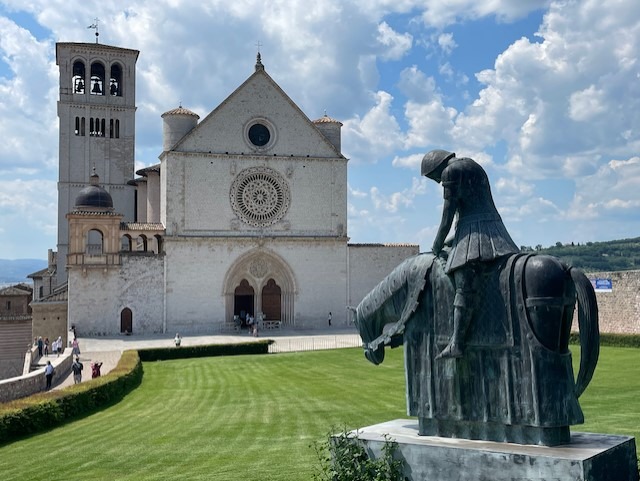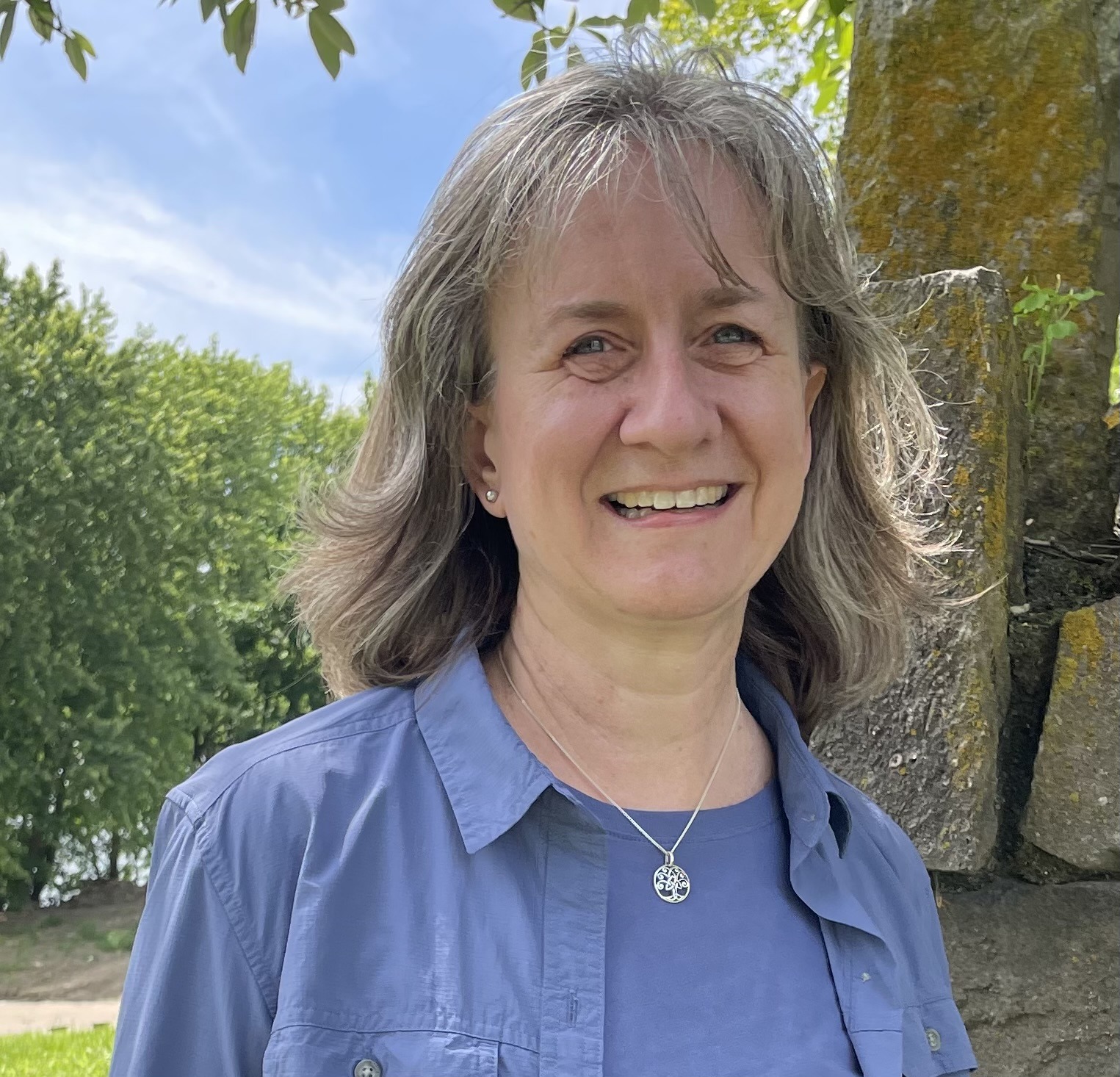
Many people assume that arriving at the destination of a pilgrimage such as the Santiago de Compostela Cathedral at the end of the Camino in Spain is the highlight for most pilgrims. After all, that was the reason for going – to reach the storied place that draws someone to step out. However, I’ve heard most people say that when they look back, these sacred sites are not necessarily the most significant parts of their journey. Instead, the community, the prayer practices, the walking, and even the interruptions along the way played a larger role in their spiritual journey.
Perhaps this is appropriate since the arrival at a single location is not really the end of the pilgrimage. Returning home may be just as significant. Home is where you continue to live out any transformation God worked on the journey.
Recently as I led a pilgrimage to Assisi, Italy, following in the steps of the saints Francis and Clare, I again experienced this reality. These two individuals left their secure family houses in this small town to begin new communities centered on Jesus. Living out of their moment-by-moment interactions with the incarnate Christ they not only found a renewed sense of home, they drew others into this way of life and deep belonging.
Yes, seeing and sitting in the massive basilicas that were built to commemorate Francis and Clare after their deaths was awe-inspiring. But I also noticed how God was working in me along the way – over dinners, in times of silence, and through failures. These were the types of moments in which Francis and Clare also formed their lives of following Jesus. Ultimately it wasn’t one aha moment that prompted change, but quiet and continuing steps on the road.
Reflecting on this journey I realize that in the walking, the places, and the prayers, I was becoming more attuned to God’s invitations. As I returned home I sensed a quiet presence and nudge from God. Be with me. Walk with me. Welcome others along. Where you are. Be at home in me. In every space you are.
How is God inviting you to live in his presence on your pilgrimage journey on campus? In her book, Born To Wander, Michelle Van Loon, encourages readers to “reclaim a pilgrim identity,” that is, an identity of wandering this earth lightly becoming more and more aware of God’s presence, and living out of this reality in all parts of our lives. It’s a journey we see throughout scripture and one that we can embrace today.
Maybe there isn’t a sacred center that is easy to define on campus, but you’ve been walking toward stories that God has called you to. Toward a degree in your field of study. Toward tenure. Toward teaching a certain course. Toward a research project. Along the path, God has shown up and been transforming you. Looking back, what are some of the practices, the people, and places that have given you life, that have helped you be attuned to God’s presence? These things you can bring home to your walk every day as a pilgrim on campus.
ADDITIONAL RESOURCES
Van Loon, Michelle. Born to Wander: Recovering the Value of Our Pilgrim Identity, 2018.
In anticipation of the next Via Divina online pilgrimage, The Harmony Way, pilgrimage director Jamie Noyd is sharing six spiritual practices of pilgrims over the next weeks before The Harmony Way begins on October 14. This is the sixth in the series. Visit the landing page for The Harmony Way for more information and to register.
PREVIOUS POSTS IN THE SERIES:
Pilgrimage Practices (#1): Becoming Aware of our Stories
Pilgrimage Practices (#2): Walking
Pilgrimage Practices (#3): Place
Pilgrimage Practices (#4): Praying
Pilgrimage Practices (#5): Community

Jamie serves with InterVarsity Graduate and Faculty Ministries as an Associate Director of Faculty Ministry and as interim Director of the Emerging Scholars Network. Among other things, in this work she enjoys the opportunity to put into practice her doctoral research in literary pilgrimage and training in spiritual direction. She also ministers with the local faculty community at the University of Cincinnati.

Leave a Reply